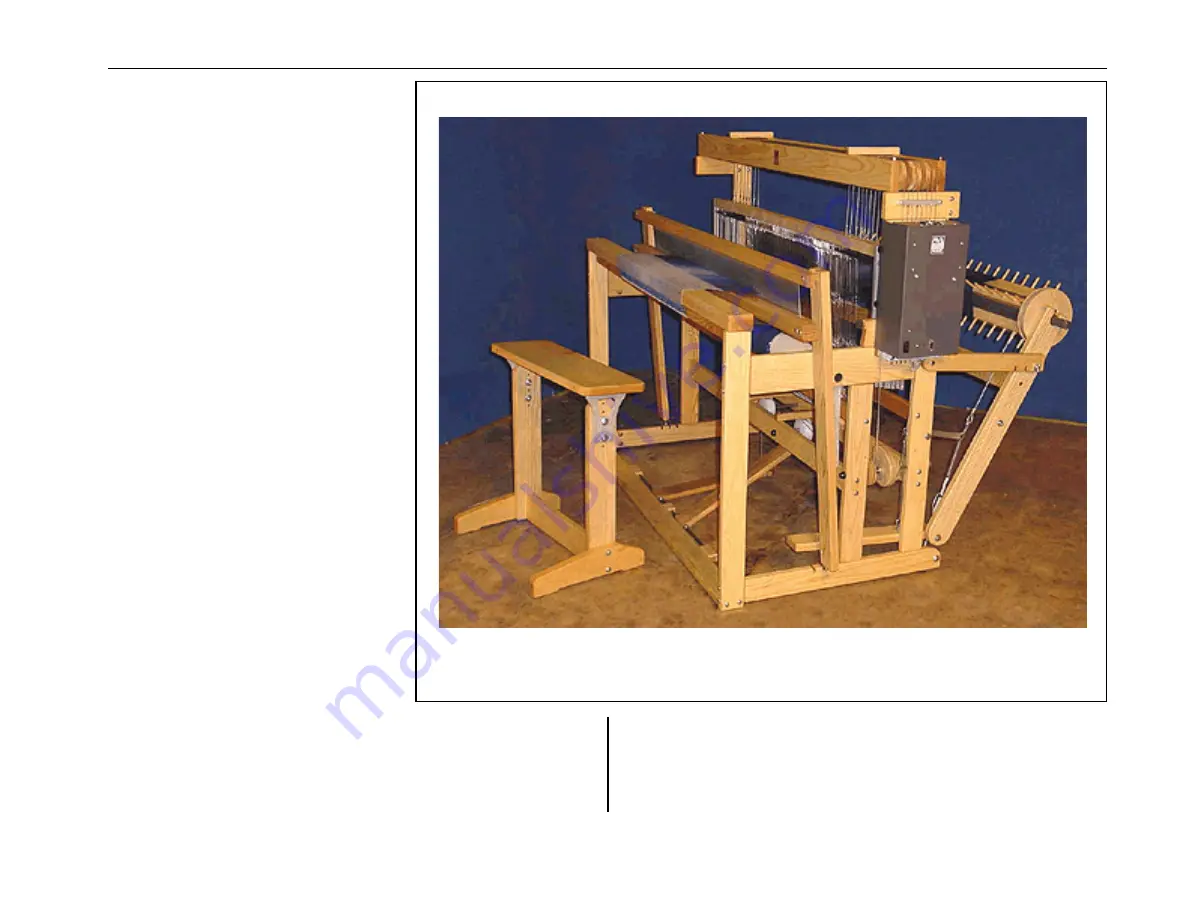Reviews:
No comments
Related manuals for HOME LOOM with Compu-Dobby III

IRBM
Brand: Cabletron Systems Pages: 10

Brunswick Bow Front
Brand: Mincey Marble Manufacturing Pages: 6

ProfiNet BIS M-4008-048-001-ST4
Brand: Balluff Pages: 3

57-1543
Brand: K&N Pages: 2

TM-SAU02W
Brand: THOMSON Pages: 9

28G Nano-Cube WIFI
Brand: JBJ Pages: 24

AEROFINER III
Brand: Haldex Pages: 2

13146
Brand: Curt Manufacturing Pages: 4

ARCHITECT KGSS907
Brand: KitchenAid Pages: 56

66175FASJ
Brand: Sunex Tools Pages: 7

75-5039
Brand: S&B Filters Pages: 12

Schwefelnitratreductor SN 400
Brand: Aqua Medic Pages: 19

HD PORTAL
Brand: Media Pointe Pages: 29

DC757X
Brand: Pace Pages: 63

PL-2000
Brand: LaBina Pages: 9

PL-500 Control
Brand: LaBina Pages: 18

ProFlora u501
Brand: JBL Pages: 163

TFC 6859795
Brand: Cascade Pages: 2






















